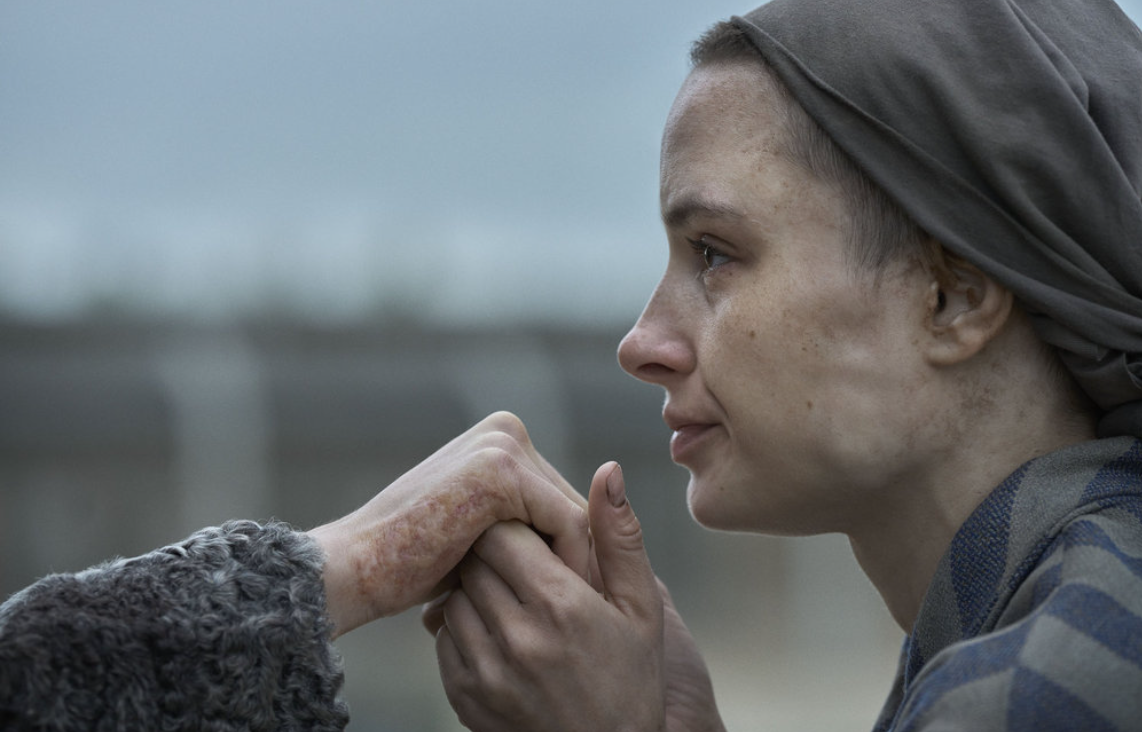‘The Farewell Party’ Shows the Lighter Side of Euthanasia

Dark Comedy: ‘The Farewell Party’ captured four Israeli Academy Awards and another ten nominations. Image by Courtesy Samuel Goldwyn films
At the beginning of “Annie Hall,” Woody Allen tells a joke about two old ladies vacationing at a Catskills resort: “Boy, the food at this place is really terrible,” says one. “Yeah, I know,” says the other, “and such small portions.”
“Well that’s how I feel about life,” Allen continues. “Full of loneliness and misery and suffering and unhappiness, and it’s all over much too quickly.”
That paradox is at the heart of “The Farewell Party,” a black comedy about euthanasia written and directed by Sharon Maymon and Tal Granit. The film — which picked up four Israeli Academy Awards and another 10 nominations — depicts a group of senior citizens who band together to put their terminally ill friend out of his misery. But it’s also about how each of the characters deals with their own old age, and whether it really is better to live longer, no matter the cost.
Yehezkel — played by Ze’ev Revach, who won a best actor award for his performance — is a grandfatherly teddy bear of a man whose compassion sometimes runs ahead of his common sense. In the first scene we see him at his desk, making a prank call to a neighbor suffering from cancer. With the help of a homemade voice modulator — among other things, Yehezkel is an amateur inventor — he convinces her that he’s God, and although she’s definitely going to heaven, there are actually no vacancies right now, so she should continue with her treatments.
Yehezkel’s wife Levana (Levana Finkelshtein) stands in contrast to her husband, not only because of her slim and stylish appearance — her pixie haircut is the epitome of senior chic — but also because of her down-to-earth attitude. Still, she generally goes along with her husband’s schemes, at least to a point. When the cancer patient reverse dials God and gets Levana instead, she stumbles for a second before telling her that God is in the bathroom.
Encouraging a sick neighbor to get treatment is one thing. But what if the patient is never going to get better? When their friend Yana (Aliza Rosen) wants Yehezkel and Levana to help her terminally ill husband Max end his suffering for good, Yehezkel thinks it’s their duty to do what they can. Levana, on the other hand, believes that it’s murder. “People cling to life until the last minute,” she argues. “Why give up?”
Despite Levana’s objections, Yana and Yehezkel recruit two other residents — Dr. Daniel (Ilan Dar), a veterinarian, and Rafi Segal (Rafi Tabor), a retired police officer — to help carry out their plan. Yehezkel himself builds a kind of Kevorkian machine that will allow Max to end his own life, rather than requiring someone else to do it.
This is all very serious stuff, but Maymon and Granit approach it with levity. Indeed, euthanasia is a subject that seems to invite dark comedy — it’s as close as you can get to gallows humor without an actual noose. Other recent treatments include the BBC sitcom “Way To Go,” about three men who start an assisted suicide business; the Belgian movie “Kill Me Please,” about a doctor trying to master “the perfect suicide”; and the Quebecois classic “The Barbarian Invasions,” about a cancer-stricken professor who decides to start using heroin.
Granit and Maymon’s comedic style is perhaps a little broad, but the jokes land well, even when you can see them coming. When Yehezkel tells Yana he needs another week before he can do anything, she responds without irony, “He could be dead in a week!” As the gang marches through the hospital toward Max’s room, Rafi explains to Dr. Daniel that they’re doing the deed in broad daylight to avoid being conspicuous; right on cue, Daniel stumbles into a trashcan, sending its contents all over the floor. And when they leave Max’s room afterward, just ahead of a phalanx of nurses, Daniel mutters, “We should sue this place for malpractice.”
Joking about death has a certain Jewish flavor to it. And Israelis have demonstrated a particular skill at dark comedy in recent years, with movies like Talya Lavie’s “Zero Motivation,” about the tedium of military life, and Joseph Pichhadze’s “Sweets,” about a mob war between two candy tycoons.
But even though “The Farewell Party” is an Israeli movie, it’s not a movie about Israel. It could take place almost anywhere, or at least, in any First World setting. Perhaps the most Israeli aspect of the film is the music, especially Naomi Shemer’s mournful “B’eretz Lahadam,” (“In the Land of Never-Was”), a dirge about the Next World that provides a surreal interlude during the film (the characters, both dead and alive, do the singing) and is played again during the end credits.
Instead, “The Farewell Party” is about vicissitudes that arrive regardless of circumstance, geographic or otherwise. In fact, the characters are in a remarkably good situation. Their retirement community is comfortable, with a big sun-lit cafeteria, a swimming pool and a garden. It has the air of a summer camp, complete with after-hours hijinks; in one scene the gang gets caught smoking pot in the greenhouse, among other indiscretions.
In contrast to the potential isolation and loneliness of old age, the residents here are surrounded by friends, with children and grandchildren coming often to visit. Ilan and Rafi have become gay lovers, and although this produces its own share of problems — Rafi is in the closet, and won’t leave his wife — they seem lucky to have found each other. Yehezkel and Levana are particularly fortunate in their long-lasting marriage, and the love between them provides a strong emotional counterpoint to the movie’s more painful scenes.
Yet none of this is any protection against the inevitable. Old age brings sickness and suffering, and nobody is immune. It turns out that the service Yehezkel and his friends did for Max is in greater demand than they had anticipated, and they start getting requests to help other terminally ill spouses and loved ones. Then midway through the movie we find out that Levana is suffering from the early stages of dementia, which complicates both her opposition to euthanasia and her husband’s support for it. When Yehezkel tries to reassure her, telling her, “We’re in this together,” she corrects him sadly, “I’m in this alone.”
The tragedy of “The Farewell Party” is that no matter how good or bad you’ve had it, no matter how well off you are financially or how loving your family, not even if you’ve had the tremendous good fortune to grow old with the person you love, age will come and take it away. Life may be full of misery and suffering and unhappiness, or it might be full of love and pleasure and joy — either way it’s over much too quickly. What else can we do but laugh?
Ezra Glinter is the deputy culture editor of the Forward. Contact him at [email protected] or on Twitter, @EzraG

I hope you appreciated this article. Before you go, I’d like to ask you to please support the Forward’s award-winning, nonprofit journalism during this critical time.
Now more than ever, American Jews need independent news they can trust, with reporting driven by truth, not ideology. We serve you, not any ideological agenda.
At a time when other newsrooms are closing or cutting back, the Forward has removed its paywall and invested additional resources to report on the ground from Israel and around the U.S. on the impact of the war, rising antisemitism and the protests on college campuses.
Readers like you make it all possible. Support our work by becoming a Forward Member and connect with our journalism and your community.
Make a gift of any size and become a Forward member today. You’ll support our mission to tell the American Jewish story fully and fairly.
— Rachel Fishman Feddersen, Publisher and CEO
Join our mission to tell the Jewish story fully and fairly.






















